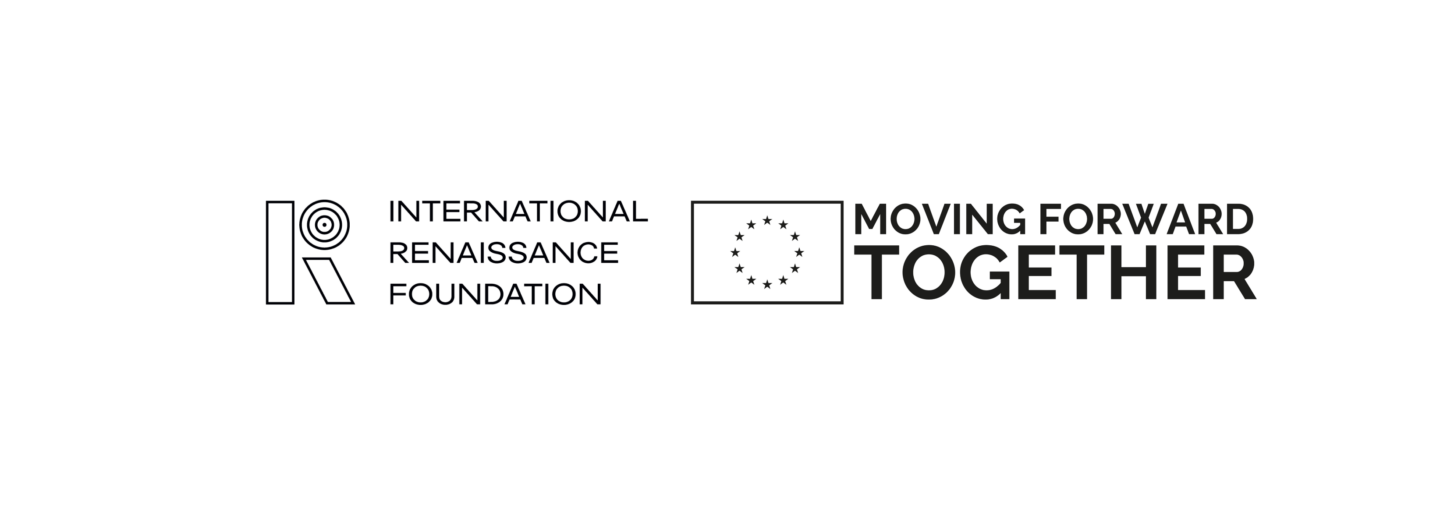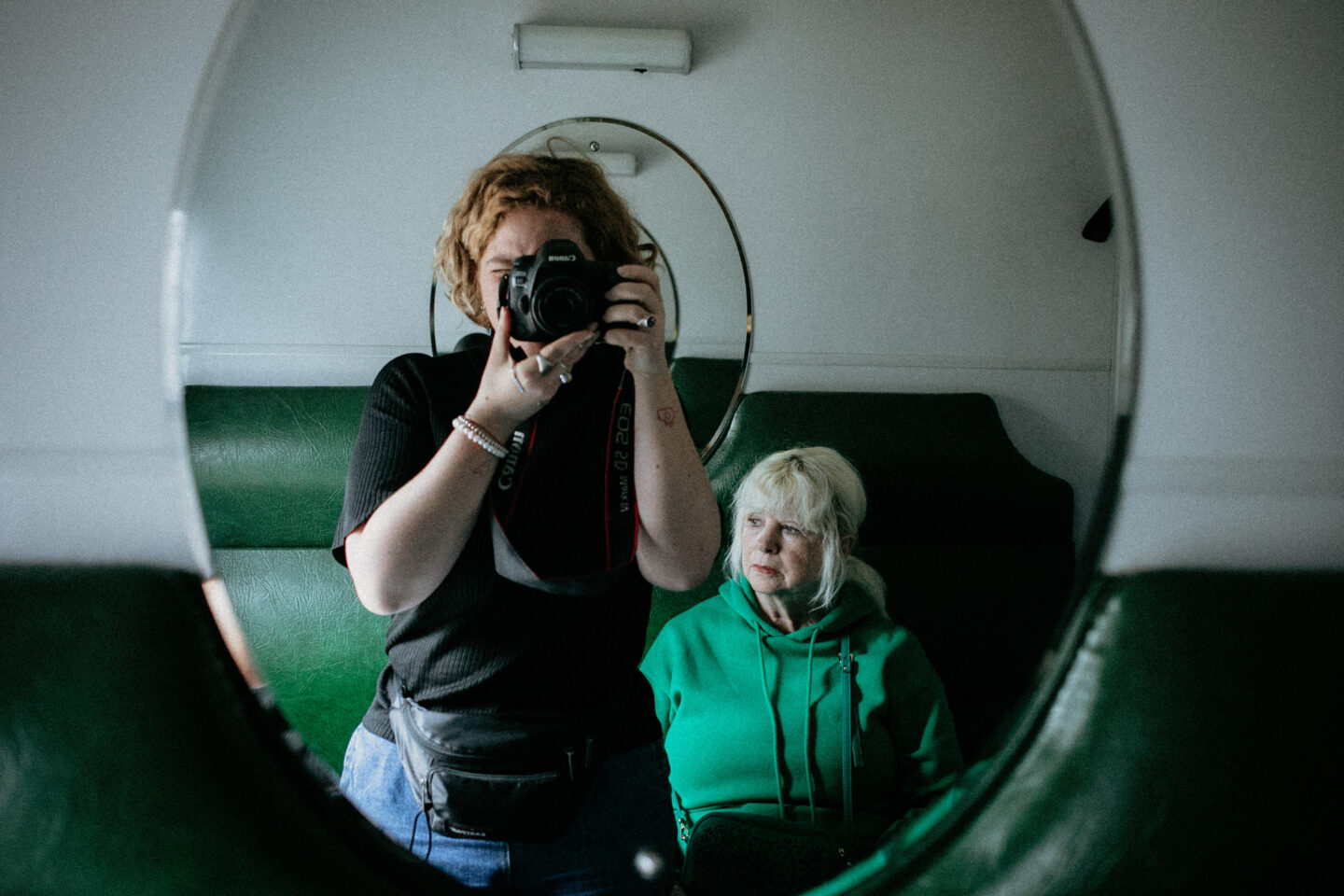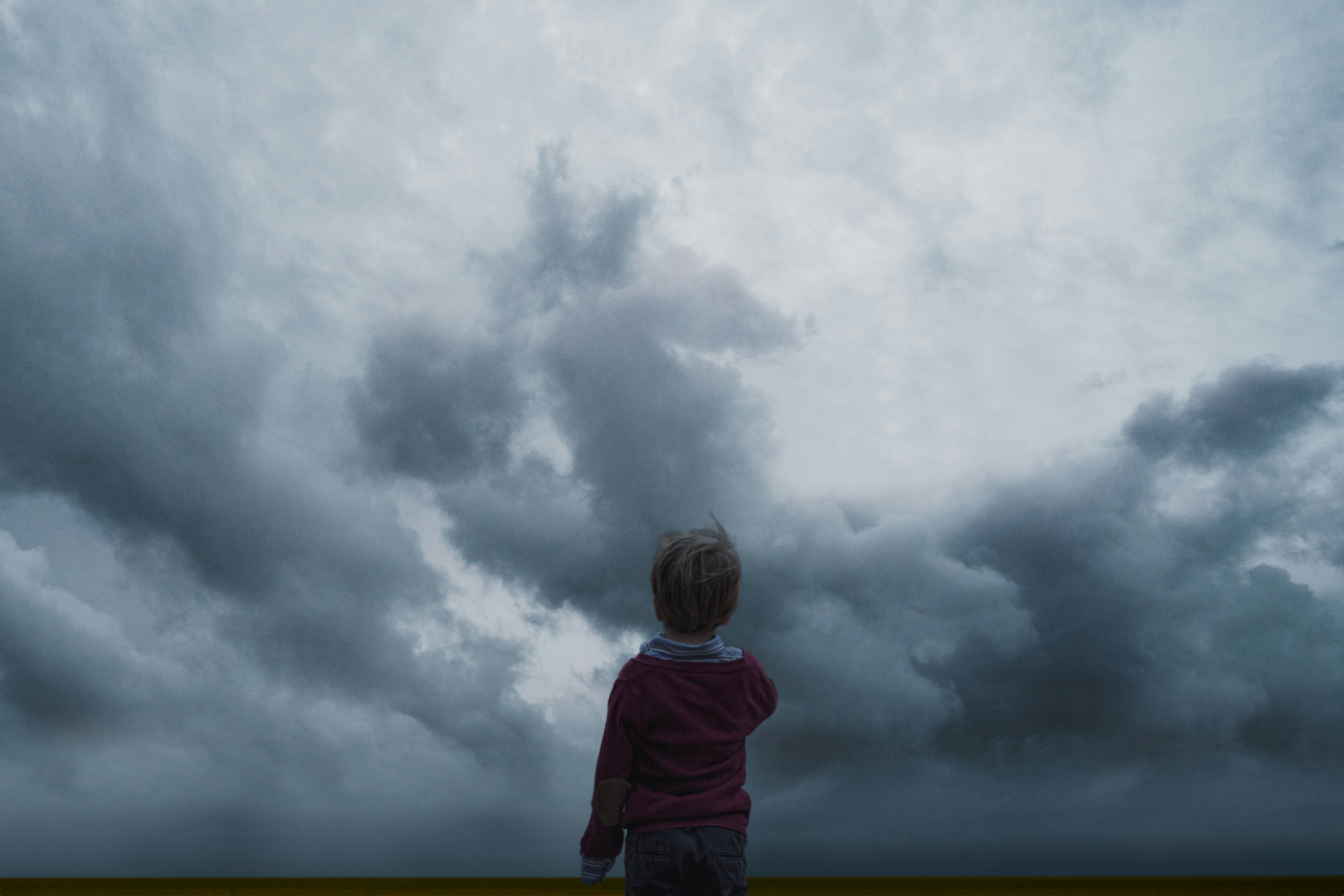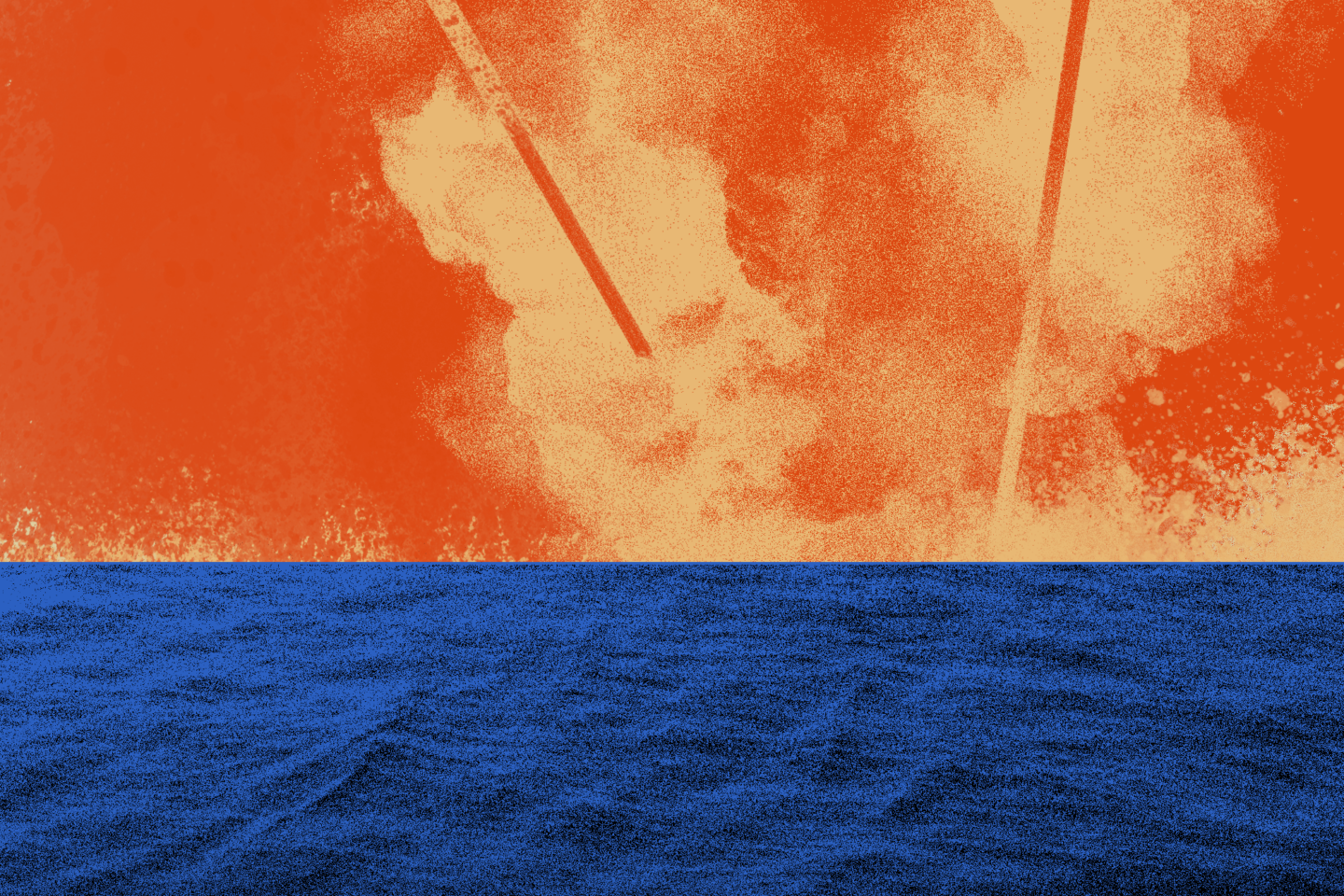When I cross the border into Ukraine, I breathe out.
I breathe out the months spent away from home, the endless moves; searches of housing, schools; meetings, and events abroad.
I breathe out loneliness.
When people ask how Germany is treating me, I answer quietly, “Good, can’t complain.” Because what are logistical issues, the lack of housing, building a home from scratch without even a kitchen or fridge, lack of any child support compared to truly tragic stories of families who’ve lost homes, or even lives?
My husband is Ukrainian but a German citizen. He works in Munich. We were already living between two countries, but Russia’s full-scale invasion of Ukraine tipped the scales in a way we never wanted. We decided to temporarily move to Germany for our daughter, who was only one and a half when the war began. So, we reluctantly left our hometown. I convinced myself that we’d be back in a few months, that it was only temporary. And yet, that “just around the corner” moment never comes.
When people ask how I’m doing, I say I’m holding on. I’m holding on, ground myself, I try to cope, having a small child and an elderly mother who requires constant care.
But when I arrive in Ukraine, I breathe out.
There’s no feeling like it. They say a child can spend hours with other adults and seem happy, but as soon as they return to their parents, they start to cry. Why? Because parents create a sense that it’s okay to relax. So they can share their emotions, cry them out.
Crossing into Ukraine, I breathe out. My body physically feels relief. I want to cry and laugh at the same time.
No joke: I want to fall to the ground and press myself against it, to feel it closer.
Months of separation are so painful. The voice of the Ukrainian border guard sounds like the sweetest thing. The coffee at the first gas station tastes far better than in Europe’s finest cafes.
So, breathe out.
And breathe in.
***
I walk into my apartment, which has become a temporary shelter since February 2022. People from Kyiv, Sumy, Kramatorsk, Chernihiv, Zaporizhzhia have stayed here. I can’t even remember or list all the families.
The apartment is cleaner than when I left. I feel like hugging every item, every book on the shelf. Since my apartment is near a power plant, I often dreamed it would be hit, and everything would burn.
To sleep in my own bed. To greet my neighbors. To tell the cashier at the nearest shop, “One Sykhiv loaf, please.” Little things that add a sense of presence.
To carry mats and blankets into the hallway to move my child there at 4 a.m.—this is another piece of reality and presence.
My child knows what an air raid siren is. Wherever we are, she says, “Mom, the katsaps [Russians — Ed.] are here, we have to hide.” It’s so strange to hear this from the mouth of a now three-year-old girl. We talk little about the war, but sometimes she catches snippets from the news. She asks, “Why do katsaps want to kill us? Why are they shooting?”
How am I supposed to answer these adult questions?
At the playground, when Anna stands on the wooden ship and “sails,” I ask her:
“Where are you going?”
“To Ukraine,” she says without hesitation.
She says the same to her grandma, who lost her memory after a serious illness:
“Grandma, we’ll go to Ukraine soon, you’ll see. Right, Mom?”
***
What do I notice in Lviv?
The semblance of “normal life.” Cafes, restaurants, museums, galleries are open. The city’s cultural life is thriving as before. Only the destroyed Russian tanks in Rynok Square serve as reminders of a reality lurking behind us.
When a siren sounds across the city, no one runs to shelters. My friends in Kyiv don’t rush either. When I came to the capital for a PEN Ukraine event, and an alarm went off, no one scrambled for the shelter. In the city that’s hit daily.
***
My book [Our Others: Stories of Ukrainian Diversity — Ed.] has been translated into five languages, so there’s often interest in readings and discussions about Ukraine. I only declined when they put Russians at the same table with me.
Dozens of conversations with readers weren’t always easy. I ran into Europeans’ illusions about Russia, its culture and history, always with Dostoevsky somewhere in the mix. I had to explain things that are crystal clear to us.
We Ukrainians know what Russia is.
Deportations, repression, persecutions, killings — that’s Russia’s true face.
After these events, preconceptions would disappear, and I’d receive grateful responses.
But the fear of remaining unheard stayed.
***
A dream. I arrived in a distant country and entered a grand, ornate hall. The audience was over five hundred people from all around the world.
The shimmering jewelry of the women in the front rows, their elegant dresses, the hosts’ crisp white shirts blinded me.
I was in a simple T-shirt, jeans, and a jacket I wore for trips across Ukraine. In 2019, I wore this same outfit in Mariupol while writing about Ukraine’s Greek communities. Back then, I wandered well-kept squares, took photos near the drama theater, and admired an infrastructure more developed than in my native Lviv.
After the formal introduction, I stepped onto the stage and tried to make out the faces of those in the audience. They seemed nice. I was bothered by my dirty reporter’s pants. It took several seconds to collect myself and begin speaking. I gently took the microphone and said:
“When I traveled across Ukraine, studying the lives of ethnic communities in our country, I never thought the book I’d write would become archival material. I’ll forever remember my visit with the Meskhetian Turks near Bakhmut, the bride’s traditional eastern dress I had tried on, and the three-liter jar of pickled tomatoes Jasim Iskandarov wouldn’t let me leave without. I’ll remember the coffee I shared with Swedish Mariia Malmas in the village of Zmiiivka in the Kherson Oblast. I’ll remember the warm welcome from the Roma in Toretsk, Donetsk region. I’ll remember the taste of the Greek shmush pie baked by 82-year-old lady Olimpiada in Mariupol.”
Since Russia launched its full-scale aggression against Ukraine, the Meskhetian Turks have left.
The head of the Zmiivka village, who hosted me, was taken captive by the Russians, accused of being a Nazi. They released him only after 24 days of interrogations and torture.
The Russians completely destroyed the city of Olimpiada and her daughter Athena. After three weeks in a basement without food or water, under constant bombing, they left their dear Mariupol, along with their unique library of Greek literature and their home, which may not even exist anymore.
The war Russia started is altering Ukraine’s ethnic landscape, and all I can do is document these new waves of migration.
“I began recording stories of Ukrainians deported to Russia. In filtration camps, people are screened for loyalty to Ukrainian authorities or suspected ties to the Ukrainian army. Those who don’t pass the screening face torture. Or they simply disappear without a trace…”
After that, I could go no further. A lump of unspoken words lodged in my throat.
“Without you, Ukraine wouldn’t exist,” I managed to say. “We are incredibly grateful for your support. Please, help us stop this evil and violence. Help…”
The host in the white shirt came over and tried to steady me so I wouldn’t fall. I stepped aside and saw a light-haired woman with a bob cut, wearing a red jacket with a pearl necklace, approaching me.
She looked at me sympathetically and said, “I’m so sorry your country has to go through such horrors. You’re now working on deportation stories and know about filtration camps. Could you help us with a project? We’d like to fund the renovation of the filtration camps.”
I panicked, shouting, “Renovation? So the Russians can kill Ukrainians in better conditions? So it’s more comfortable to cut off arms and legs, pull out nails, and skin people?! No, please, don’t do this, I’m begging you!”
I lost control and started screaming. “You don’t understand!!!” My voice echoed through the massive hall, going through the walls and drowning everything else.
I woke up. My pillow was wet. I couldn’t stop.
***
A few days ago, at a playground in a small German town, my Anna was playing with other Ukrainian kids. I almost always see Ukrainian children at playgrounds—with or without their moms.
This time, they were Roma from Vinnytsia. Anna was excited to speak Ukrainian, not German. After playing, the children washed our sand toys, politely said thank you, and left.
Moments later, we heard a siren. Like in Ukraine. They test it monthly here. My Anna usually cries at the sound, but this time she froze. I started explaining that it was just a test, that we were safe, that no missile was coming. She clutched my leg and wouldn’t let go until the alarm ended.
How am I supposed to shield her from this war when it follows us even in a German town?
***
While Anna is in preschool for three hours, I usually work. But today, I can’t seem to.
Just as I finish writing this column, the news arrives about the death of Victoria Amelina, a Ukrainian writer, a PEN member, our colleague.
Just a few days ago, I was hopeful doctors might somehow save her, even if with lasting effects. I can’t believe it. I’m so devastated that I break down in tears in a cafe. I don’t even know if I should hide these tears.
I’ve thought about this often: if I cry in public, on the street, at the playground, at a bus stop, I must give a strange impression. While someone in Germany is waiting for a bus and thinking about what to make for dinner, in Ukraine, someone is losing their life and will never cook another meal.
Should I say to them: You know, 10 people died today in Ukraine, 50 yesterday, 100 the day before.
You know, I read obituaries every day about friends, acquaintances, and loved ones.
You know, the Kherson Oblast I loved, where I spent a few months, has been flooded. Thousands are left homeless. Those damn Russians blew up the dam, you know that, right? The news, of course, says it’s hard to verify the information and it’s unclear who had destroyed it. Really, who else would it be.
You don’t like Zelenskyy because he demands weapons and wears a T-shirt, not a dress shirt? Go to hell.
Don’t look at me when I get notifications about more deaths.
Don’t look at my child when she freezes up from the sound of a siren.
***
I’ve heard that families who remain in Ukraine cope with the war better psychologically. At least the people around them understand, and there’s nothing to explain.
In Germany, I constantly have to explain things—that’s my job now. If it weren’t for my daughter, I’d already be on the front lines somewhere. I often feel guilty for not being there, alongside our soldiers and journalists. But the responsibility for this small life is too great. I go in circles, get angry, and do what I can.
The fury grows. My gray hair multiplies.
Involuntarily, I start thinking in German.
Unintentionally, millions like me find themselves on the edge of different languages and cultures. Enduring the temporary. Longing for home.
Torn in two.
Until we can return and, once again, feel—breathe out.
Olesya Yaremchuk — journalist, writer
The views expressed in this material may not reflect the opinion of The Ukrainians Media. Reprinting the text or any part of it is permitted only with the written consent of the editorial team. The main image was created using artificial intelligence technology via the Midjourney neural network
Translation — Iryna Chalapchii
§§§
[The translation of this publication was compiled with the support of the European Union and the International Renaissance Foundation within the framework “European Renaissance of Ukraine” project. Its content is the exclusive responsibility of the authors and does not necessarily reflect the views of the European Union and the International Renaissance Foundation]





